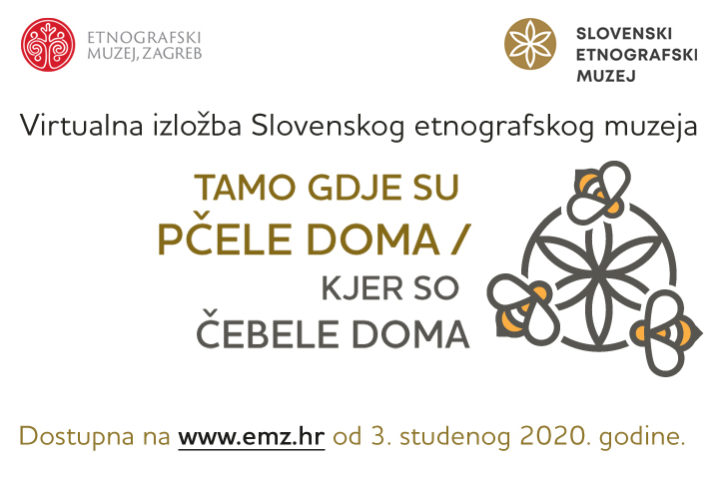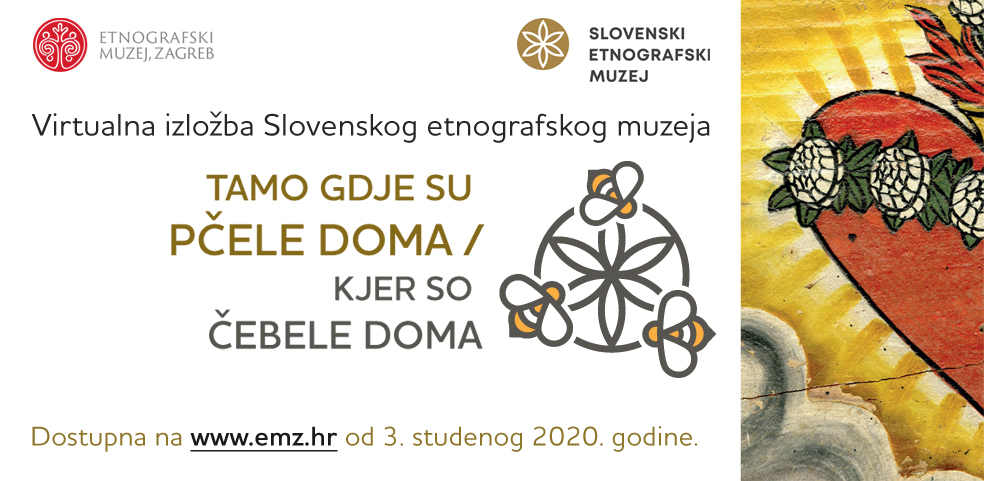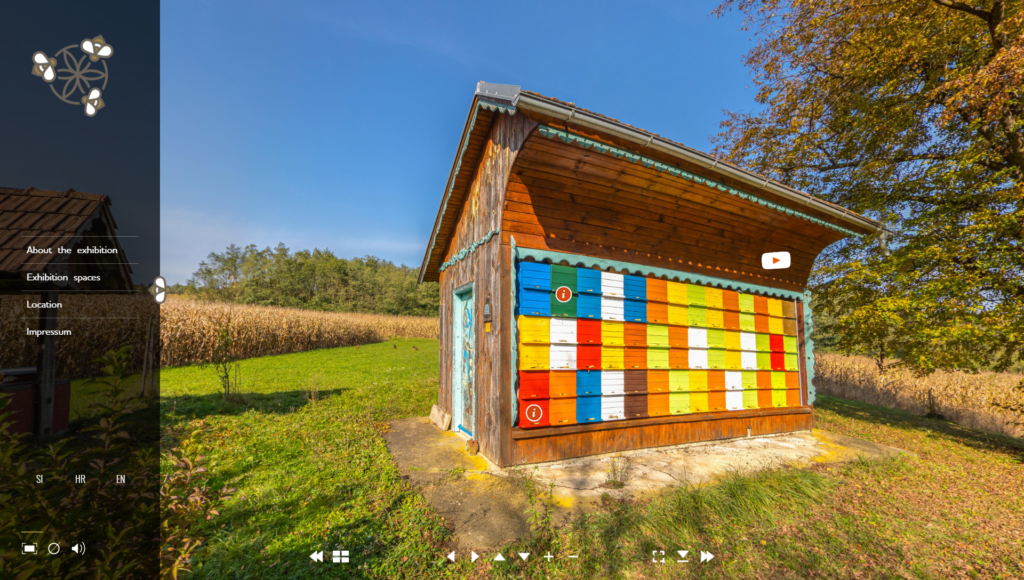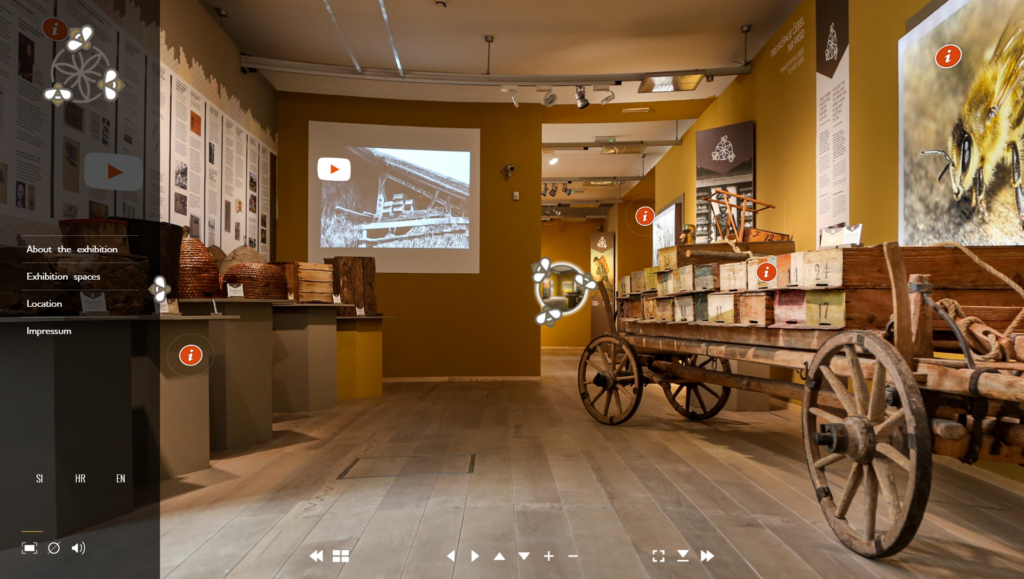December 8, 2020
Slovene Ethnographic Museum and the Ethnographic Museum in Zagreb International Co-operation During the COVID-19 pandemic Exhibition

The exhibition staged by the Slovene Ethnographic Museum in Ljubljana entitled Kjer so čebele doma (Where Bees Are At Home) was open in its main museum in 2018, while a travelling exhibition in the Ethnographic Museum in Zagreb was planned for 2020. These two national ethnographic museums located in capital cities of neighbouring countries have been successfully co-operating for many years through exchange of exhibitions, ideas and knowledge and hence this international co-operation is only one of many. Nevertheless, the recently occurred situation resulting from the pandemic caused by SARS-COV-2 virus and the measures provided by the national civil protection headquarters both in the Republic of Croatia and in the Republic of Slovenia made it impossible to actually stage a travelling exhibition. Consequently, the management both of the Ethnographic Museum in Zagreb and the Slovene Ethnographic Museum opted for a slightly different form of co-operation, adapted to the newly arisen opportunities, that is to the “new normal”.

The exhibition entitled Kjer so čebele doma (Where Bees Are At Home) was transferred into a virtual exhibition format and the texts have been translated into both Croatian and English and a link (www.emz.hr) was provided on the website of the Ethnographic Museum in Zagreb for the virtual exhibition of the Slovene Ethnographic Museum.

In this way we staged the virtual exhibition which opened on the 3rd November 2020 and it could be watched through live streaming. The opening saw the participation of the director of the Ethnographic Museum in Zagreb, Goranka Horjan, the director of the Slovene Ethnographic Museum, Tanja Roženbergar, the authors of the exhibition Barbara Sosić and Bojana Rogelj Škafar (SEM), the curator of the exhibition Željka Petrović Osmak (EMZ), while the exhibition was opened by the Ambassador of the Republic of Slovenia to the Republic of Croatia, His Excellency Vojislav Šuc.
The virtual exhibition Kjer so čebele doma (Where Bees Are At Home) presents the collections of the Slovene Ethnographic Museum and provides an overview of the Slovenian beekeeping, which through painted beehives and apiaries, as well as the rich natural and cultural heritage reveal the Slovenian cultural landscape. Slovenia is the home to top quality beekeepers and autochthonous Kranj bees. The virtual exhibition takes the visitor on a tour through several topics: history of beekeeping in Slovenia, while listing the reputable Slovenian beekeepers, both practitioners and theorists, who have significantly contributed to the development of beekeeping both in Slovenia and beyond. Moreover, the basic characteristics and features of traditional Slovenian beekeeping, with a rich presentation of a wide range of beehives. It is important to highlight the interesting painted beehives, a unique Slovenian tradition. In addition, transport of bees; different customs and beliefs linked with bees and beekeeping and contemporary topics of urban beekeeping, apitherapy and apitourism development.

In November and December 2020, the Ethnographic Museum in Zagreb accompanied the virtual exhibition of the Slovene Ethnographic Museum Kjer so čebele doma (Where Bees Are At Home) with a large number of promotional and educational programmes. The programmes in question address topics linked with individual topics addressed by the exhibition, such as history of beekeeping, making bees using felting technique, traditional beekeeping, as well as lectures and workshops on how to make honey-based beauty products. The programmes are organised at the Ethnographic Museum premises, as well as on-line, on the website and on social media of the Ethnographic Museum in Zagreb.
The Slovene Ethnographic museum and the Ethnographic Museum in Zagreb have shown in this way that museums can adapt both their programmes and their methods of work to different social situations. This time they exploited their adaptability in order to raise public awareness of the importance of beekeeping as an extraordinary branch of the economy with a long tradition, passed on from generation to generation for years. It is particularly important nowadays when we are becoming aware that through conservation of biodiversity, social and cultural diversity, we are actually protecting the planet that we live on and that is our only home.
Željka Petrović Osmak and Barbara Sosič